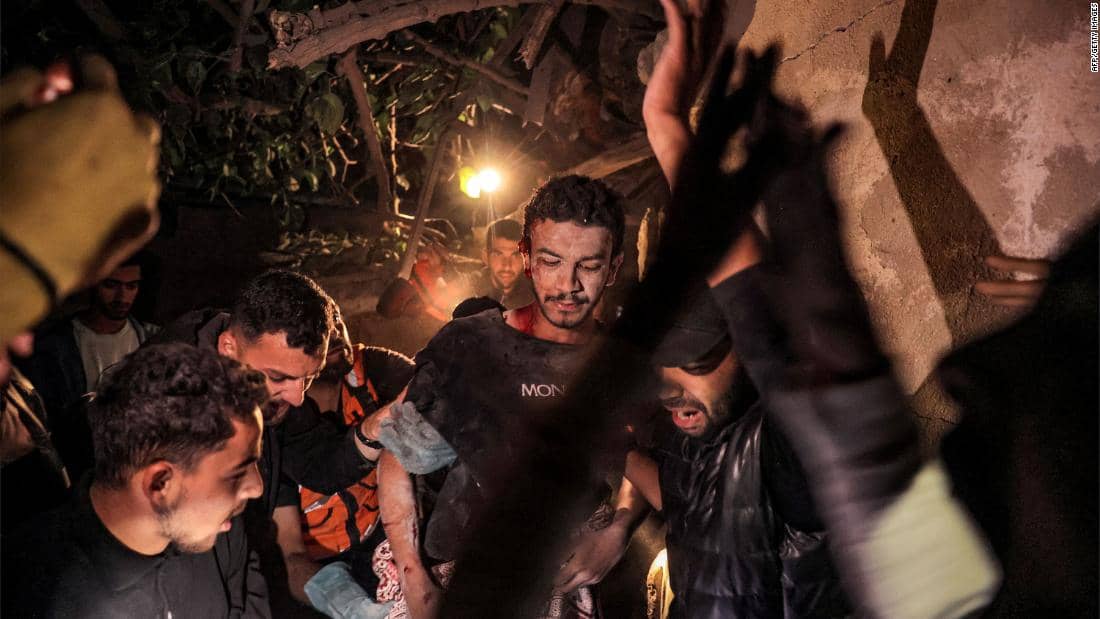Every episode is chock-full of mouthwatering regional specialties prepared by chefs all over the country. For those wanting to follow in Stanley Tucci‘s footsteps, below is an episode-by-episode guide to all the

Every episode is chock-full of mouthwatering regional specialties prepared by chefs all over the country.
LIGURIA
PUGLIA
Puglia is famous for its fragrant olive oil, beautiful vegetables, delicious cheeses and flavorful durum wheat. Frequently called the boot of Italy, this southern region represents the nation’s culinary scene at its most fundamental — simple, fresh, locally produced cuisine. Despite being one of Italy’s poorest regions, Puglia is coming into its own, and Tucci discovers that there’s a newfound pride in its gastronomic roots.
SARDINIA
Sardinia is the most remote region of Italy. Cut off from the Italian peninsula, this island has developed its own customs and cuisine. Eating here is like going on the culinary equivalent of an archaeological dig since so many waves of settlers throughout history have influenced the food. While stopping here, Tucci discovered two sides to this fascinating region: the coast with its seafood and a dazzling mix of cultures drawn from around the Mediterranean; and the interior — a steep, rocky landscape where locals stubbornly cling to their ancient traditions and freedoms.
Al Forno, located in the medieval city of Alghero known as little Barcelona, is a small bakery. Tucci ordered panada — a type of Sardinian savory pie said to have received its name from empanada, a similar pastry dish thought to have originated in Spain. “Oh my God!” Tucci proclaimed. “It’s like Italy and Spain together in my mouth.”
CALABRIA
Don't Miss
Group of Seven leaders have reached an agreement to loan money to Ukraine backed by the profits from frozen Russian investments, a senior US administration
The Israeli government has dropped some of the most controversial rules in a draft ordinance controlling how foreigners can enter and stay in the occupied West Bank.
A draft of the rules was published in February and received harsh public backlash as well as legal challenges which forced a delay to their implementation.
One of the most controversial rules would have required foreign passport holders entering a formal relationship with a Palestinian living in the West Bank to notify Israeli authorities within 30 days of their engagement, wedding, or moving-in together. Another regulation in the draft placed quotas on the number foreign academics – lecturers and students – permitted each year.
But those regulations have been removed from the official guidance published on Sunday. The rules are currently set to take effect on October 20.
Israel says the new ordinance is meant to codify norms already in place.
The document also states that the new regulations will be part of a “two-year pilot period” after which “the situation will be evaluated and a decision will be made regarding whether to keep the procedure in force.”
An Israeli official, speaking on condition of anonymity to speak more freely, told us the reason Israel wanted foreigners to declare romantic relations with West Bank Palestinians was to simplify visitors’ visa process. The official said as an example, a student with a foreign passport who fell in love with a Palestinian could – instead of needing to renew their student visa every year – just register as a couple and receive the equivalent of a spousal visa.
But Palestinians and human rights groups said the rules were a further tamping down on the basic rights of Palestinians in the West Bank – while such rules would not have applied to Israeli settlements in the West Bank that are governed by Israeli civilian law.
Much of the international community, including the United States, considers the West Bank to be occupied territory since Israel took control of the area following the 1967 Arab-Israeli war. Israel controls all movement in and out of the territory.
The draft guidelines published in February were challenged in the Israeli Supreme Court by human rights groups and individuals.
In a statement, US Ambassador to Israel Tom Nides said the Embassy had been “aggressively engaged” with the Israeli government since the draft rules were published in February.
“I continue to have concerns with the published protocols, particularly regarding COGAT’s role in determining whether individuals invited by Palestinian academic institutions are qualified to enter the West Bank, and the potential negative impact on family unity,” Nides said. “It is important to ensure all of these regulations are developed in coordination with key stakeholders, including the Palestinian Authority.
COGAT is the Israeli agency which administers Israeli policy in the West Bank.
In a statement HaMoked, an Israeli-Palestinian legal aid organization that challenged the ruling in Israel’s Supreme Court, said the Israeli government “has removed some of the most outrageous elements” of the draft rules but that the basic problem remains: it is extremely difficult for foreign spouses of Palestinians to gain legal West Bank residency.
“[The] Israeli military takes the prerogative of micromanaging Palestinian society – including interfering with academic freedom of Palestinian universities. This procedure violates Israel’s international legal obligations and HaMoked will continue its legal challenge of it,” said HaMoked Executive Director Jessica Montell.
Israeli military admits Shireen Abu Akleh likely killed by Israeli fire, but won’t charge soldiers
The Israel Defense Forces admitted that there is a “high possibility” Palestinian-American Al Jazeera journalist Shireen Abu Akleh was shot and killed by Israeli fire while covering an Israeli military operation in Jenin in May, the IDF announced Monday.
- Background: Abu Akleh was fatally shot while covering an Israeli military operation in the West Bank in May. According to an autopsy carried out by the Palestinian Authority, she was killed by a single bullet to the back of the head. Footage obtained by CNN – corroborated by testimony from eight eyewitnesses, an audio forensic analyst and an explosive weapons expert – suggested that Abu Akleh was shot dead in a targeted attack by Israeli forces.
- Why it matters: This is the first time the IDF has admitted that Abu Akleh’s death was probably caused by Israeli fire. A senior IDF official who briefed journalists on the findings of the military’s investigation before they were released said troops didn’t know they were shooting at the press, and said that Abu Akleh’s back “probably” being turned to the soldiers was a contributing factor. In images from the scene of the shooting, Abu Akleh is wearing a protective vest that is labeled “PRESS” on both the front and back.
Iran sentences two women to death for ‘corruption on earth’
Two women have been sentenced to death in Iran on charges of “corruption on earth” and human trafficking over the last few days, Reuters cited Iran’s official IRNA news agency as saying on Monday.
- Background: “Corruption on earth” is a term Iranian authorities use to refer to a broad range of offenses, including those related to Islamic morals. “Contrary to news published online, the sentenced have deceived and trafficked young women and girls out of the country by promising them educational and work opportunities, thus leading to the suicide of several of their victims,” IRNA said.
- Why it matters: Advocates and rights group took to social media to share pictures of the two women, saying they are LGBT rights activists and are innocent. Reuters couldn’t verify the pictures. In March, Iran’s Supreme Leader Ayatollah Ali Khamenei described homosexuality as part of a “moral deprivation” widespread in Western civilization. Under Iran’s legal system, homosexual acts can be punished by the death penalty.
Erdogan accuses Greece of ‘occupying’ demilitarized islands
Turkish President Recep Tayyip Erdogan accused Greece on Saturday of occupying islands in the Aegean Sea that have a demilitarized status, and said Turkey was prepared to “do what is necessary” when the time comes, Reuters reported.
- Background: Ankara has recently accused Athens of arming the demilitarized Aegean islands, which Athens rejects, but Erdogan had not previously accused Greece of occupying them. “Your occupying the islands does not bind us. When the time, the hour, comes, we will do what is necessary,” Erdogan said. Greece reacted by saying it will not follow Turkey in its “outrageous daily slide” of statements and threats.
- Why it matters: NATO members Turkey and Greece have been at odds over issues ranging from overflights and the status of Aegean islands to maritime boundaries and hydrocarbon resources in the Mediterranean, as well as ethnically split Cyprus. Turkey has also recently been angered by what it said is harassment of its jets by Greek forces.
Abandoned for years on Istanbul’s Asian shore, the city’s famed “haunted mansion” was finally sold on Friday to Turkish lender İşbank for 449.3 million Turkish Liras ($24.7 million).
The 116-year-old historic structure stands tall and majestic in the city’s affluent neighborhood of Kadikoy. It was built in 1906 by the Prussian architect August Carl Friedrich Jasmund, according to Turkish state media, and was named ‘Ragip Pasha’ after the aide-de-camp to Ottoman Sultan Abdülhamid II.
Ragip Pasha lived in the mansion until his death in 1920, and the property has since exchanged hands several times.
The three-story building has a closed area of 2,700 square meters and sprawls over a large garden space. In desperate need of renovation, its 20th-century architecture and spectacular seaside view have made it an integral historical landmark for the Kadikoy neighborhood.
The abandoned building’s rough facade and dilapidated facilities have led locals to refer to it as ‘haunted’.
The property was sold at a public tender, where the court had initially placed the building’s price at 449.4 million liras.
İşbank bought the mansion at just 8 liras over the court’s price, according to Turkish media.

Don't Miss
CNN — When customers at Silicon Valley Bank rushed to withdraw billions of dollars last month, venture capitalist Arlan Hamilton
Cotonou, Benin CNN — Standing on the stony ground in the bustling Fifa Park car lot, Rokeeb Yaya is haggling
Israel’s military has ordered the evacuation of more neighborhoods in Rafah ahead of a potential major ground operation in the
The ministry identified the dead man as 29-year-old Mohammad Sabaaneh.
The Israel Defense Forces (IDF) were in Jenin “in order to demolish the residence of the terrorist who killed three people in a deadly shooting attack in Tel Aviv the night of April 7, 2022,” the IDF said in a statement.
The IDF regularly demolishes the homes of terror suspects and their families as punishment.
The IDF said “a violent riot was instigated” during the operation and that “the rioters burned tires, hurled rocks, Molotov cocktails and explosive devices at the forces, who responded with riot dispersal means.”
The 16 wounded Palestinians were injured by bullets and shrapnel, according to the Palestinian Ministry of Health, and all were transferred to the hospital in Jenin.
A senior IDF official said the soldier thought he was firing at Palestinian militants — although Abu Akleh was wearing a flak jacket marked “Press” — and that the soldier was “sorry.”
Israel’s military prosecutor said it would not pursue criminal charges against the soldier, who was not named.
Since the beginning of the year, 87 Palestinians have been killed by Israeli troops in the West Bank, and 19 Israelis and foreigners have been killed in Palestinian attacks in Israel and the West Bank.
Don't Miss
CNN — Six people have died in a helicopter crash in Nepal, a spokesperson for Kathmandu’s Tribhuvan International Airport said
Five Syrian soldiers were killed in Israeli airstrikes that targeted Damascus International Airport and other areas near the capital, the
The Israel Defense Forces have admitted for the first time that there is a “high possibility” Palestinian-American Al Jazeera journalist












